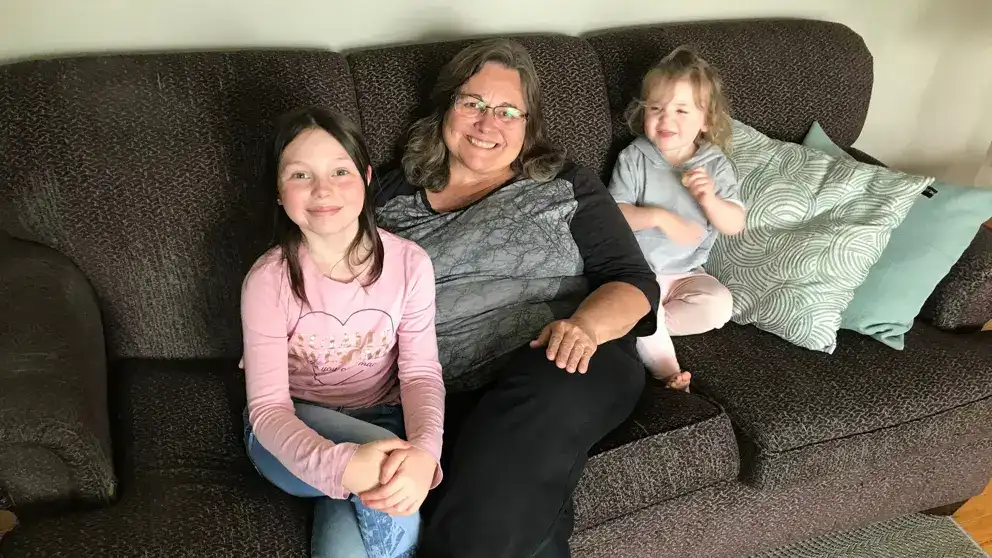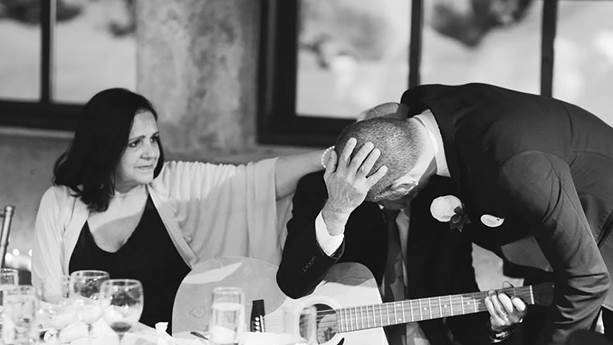“What’s wrong, Grandma?” Emily Coyle asked her grandmother as the two were setting up the game Horse Race on the kitchen table. Wendy Grohs, 60, could not deal the cards properly. She was flipping them all over the place, with some landing face up.
It was a Saturday night in early January, 2020. Emily’s parents, Marie and Tyler, were out celebrating Marie’s birthday. Nine-year-old Emily and her sister Charlotte, age two, were having one of their frequent sleepovers with grandma Wendy and grandpa Glen. The two families live just minutes apart in Prince George, BC.
“Emily, I’m fine. Don’t worry,” said Wendy. But the words didn’t come out right. They sounded garbled.
Emily noticed the slurred speech, then for a moment she thought her beloved grandmother was making a face. Suddenly, Wendy’s arm flopped to her side.
FAST signs of stroke
Something clicked in Emily’s mind. A week earlier, the Grade 4 student had participated in Jump Rope for Heart at her elementary school. During the fundraiser, her gym teacher had taught the class the signs of stroke, along with the acronym FAST to remember them. The letters stand for: Face – is it drooping? Arms – can you raise both? Speech – is it slurred or jumbled? Time – to call 9-1-1 or your local emergency number, right away.
Realizing that her grandmother was exhibiting the signs of stroke, Emily dashed into the living room, where Glen was taking care of Charlotte. “Grandpa! Grandma is having a stroke.”

You’ve got to pay attention. A stroke can happen to anybody at any time.
Emily felt scared but stayed calm and returned to the kitchen. “Smile really big for me!” she instructed her grandma. Wendy could only move her mouth on the left side. Emily asked her to raise both arms and then say, “The early bird catches the worm.” She could do neither.
By then Glen, 62, was trying to hold up his wife as she was slipping from her chair. “Dial 9-1-1,” he told Emily.
Calling 9-1-1
She picked up the nearby landline, dialled, and handed the receiver to her grandfather. The cord barely reached the kitchen, so the two of them had to keep plugging it back in and passing the phone between them to stay on the call.
The operator asked if Wendy could lift her arms, smile and speak clearly. But Emily had already put her through these tests.
The paramedics arrived soon after, about the same time as Emily’s parents and her uncle.
“I’m fine. You guys are scaring the kids,” Wendy kept trying to say to the paramedics in her slurred speech. Indeed, the sight of the straps and other equipment upset Emily, who went to her parents and started crying.
Marie took the kids home while Tyler, his brother, and Glen accompanied Wendy to the hospital. Doctors assessed Wendy as having a transient ischemic attack (TIA). Also known as a mini-stroke, it is caused by a small blood clot or plaque in the arteries. A TIA can resolve quickly but can be a precursor to a larger stroke.
Surgery delayed by pandemic
Wendy recovered in hospital without treatment and was sent home after a few days. Despite doing numerous tests, doctors don’t know for sure what caused her TIA, but found a small aneurysm in her brain that might have contributed.
She was scheduled for surgery to repair it, but the operation was postponed because of the COVID-19 pandemic. The hospital stopped doing non-emergency surgeries in March. By early June, Wendy was confident of having the operation soon.
After the incident, Emily’s gym teacher told the whole school that a student had saved her grandmother’s life by knowing the signs of stroke. He told the Grade 4 class that it was Emily, and rewarded her with a package of Starburst candies.
While Emily has no plans for a future in healthcare— she hopes for a career that lets her sing and dance — she is an excellent spokesperson about the signs of stroke.
“It doesn’t matter what kind of stroke it is, it’s real. You’ve got to pay attention,” she says. “A stroke can happen to anybody at any time.”
- Know the signs of stroke

